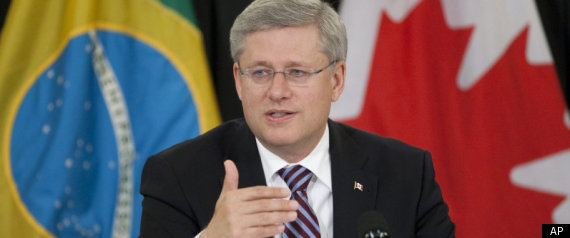 While the markets continue to create waves of pressure on the US and Europe and investors worldwide, America’s downgrade due to political infighting within the United States was met with a confirmed Triple A rating for it’s neighbor, Canada. Canada is not immune to partisan politics, but in the last election a few months back, the leading governing party throughout Canadian history was routed, going from the most elected party in the nation’s history to one with a fraction of its seats. There are many theories as to why the Liberal Party of Canada lost most of its seats in Canada’s Parliament, but it can be concluded that political infighting and a lack of stability was unnerving Canadians. With the relative success in the last recession and the method taken by its current government being approved of by Canadians, partisan politics was ended by vote and Canada remained on the same path, but with a more stable government.
While the markets continue to create waves of pressure on the US and Europe and investors worldwide, America’s downgrade due to political infighting within the United States was met with a confirmed Triple A rating for it’s neighbor, Canada. Canada is not immune to partisan politics, but in the last election a few months back, the leading governing party throughout Canadian history was routed, going from the most elected party in the nation’s history to one with a fraction of its seats. There are many theories as to why the Liberal Party of Canada lost most of its seats in Canada’s Parliament, but it can be concluded that political infighting and a lack of stability was unnerving Canadians. With the relative success in the last recession and the method taken by its current government being approved of by Canadians, partisan politics was ended by vote and Canada remained on the same path, but with a more stable government.
During this week’s global economic turmoil, Canadian Prime Minister Stephen Harper went to Brazil to re-initiate ties with its lost southern neighbor in the Americas. Years ago trade competition between Canada and Brazil via its fight for the mid sized civil aircraft market created a rift between the two nations. Past Canadian leaders sought to put Canadian companies in the forefront of the market but went as far as offending Brazil to the point of discouraging trade relations between the two countries. With the old Canadian governing party being penalized by the Canadian electorate, Canada’s newer government went to Brazil to diversify its trade relations beyond the United States and create strong permanent bonds between Canada and Brazil. Beyond the United States and its current economic difficulties, Canada, Brazil and Mexico are three large and relatively healthy economies, which surround and share interests and a neighborhood with the United States. PM Harper will also visited Colombia in his trip to Latin America, another country that has performed well in the slow global economy.
Much of the success of Canada and its Latin American neighbors can be attributed to the high commodity prices these “American” economies have benefited from, due to high demand. However, this is not the only way Canada has been able to avoid instability and Brazil and Colombia have learned from past economic crisis. These countries know that investment instability and paranoia can create a dangerous combination that can push relatively healthy economies like France, Germany, and yes, the United States into economic problems based on rumors and media fueled paranoia that leads investors into a panic and creates a week such as the one we are having currently. This combination can have such a great effect that a downgrade of the US economy based on a few selfish political leaders or a suspected secret meeting between a French bank and its nation’s President can turn us towards a longer recession.
Canada and its successful Latin American partners know that long term trade relations and growth have a stabilizing effect on their economies. This week’s meeting between Canada, Brazil and Colombia seeks to open greater trade with Brazil and to conclude the Canada-Colombia Free Trade Agreement that has already been established. Stability also comes with consistent regulations and effective laws that are not only written on paper, but are applied to their economic systems so that investors have stability and confidence in an economy. The lack of confidence in US and European leaders to follow proper regulations and to work for the benefit of their own countries are the beginning and end of investment troubles worldwide this week, an experience well known in the past in Latin America and one that Canada is working hard to avoid in its own economy, in the short term and long term simultaneously.